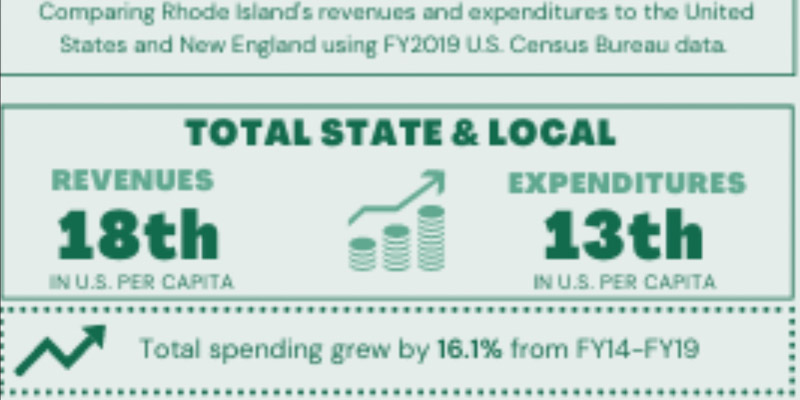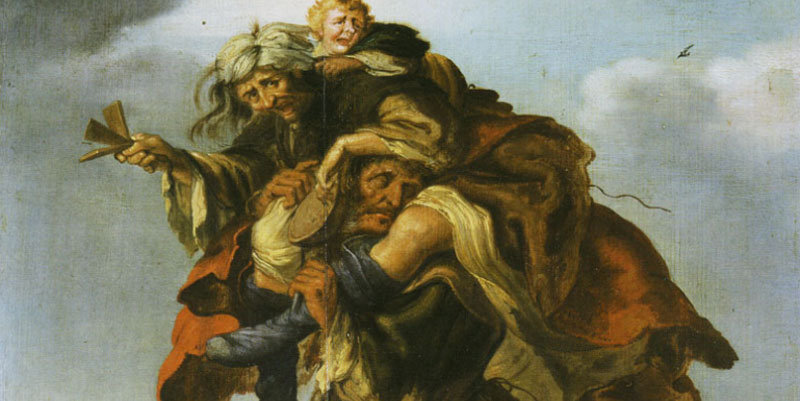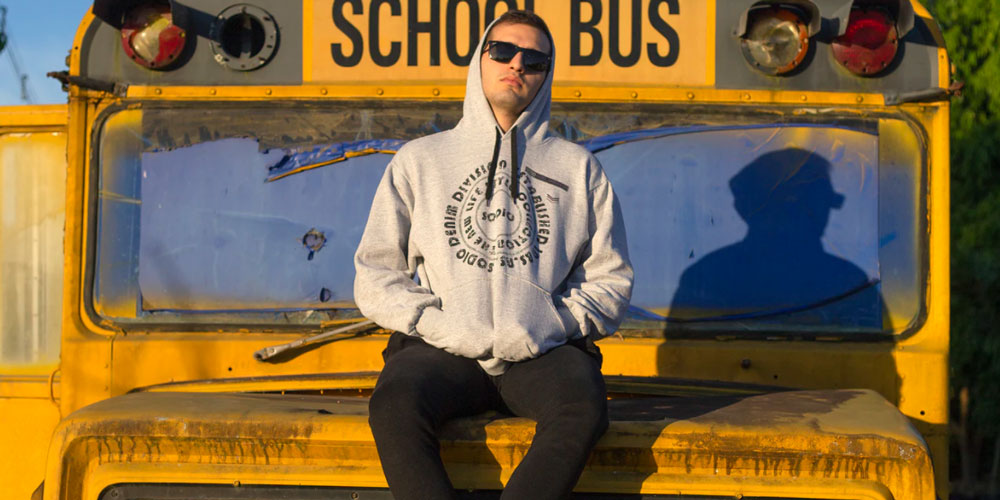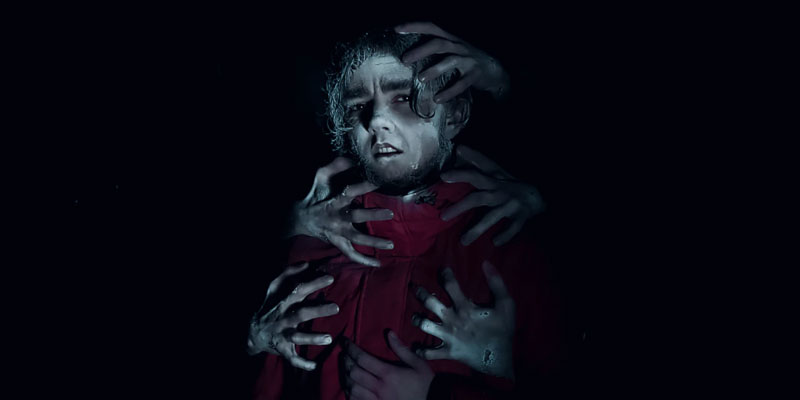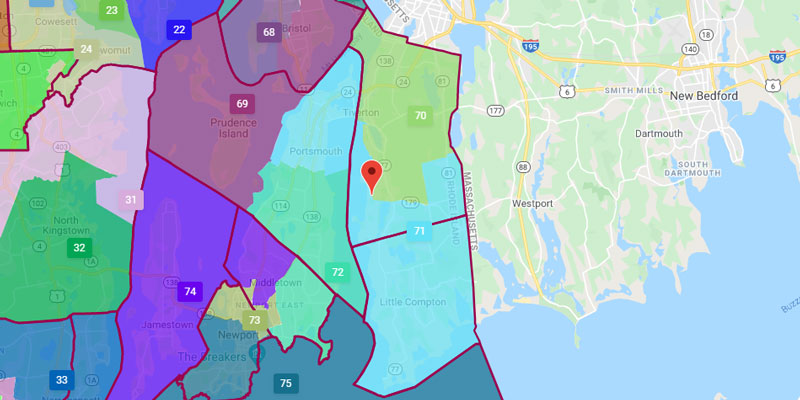Perhaps the key detail to be found in the report and interactive tools that the Rhode Island Public Expenditures Council (RIPEC) just released is to be found at the top of its associated infographic. As shown in the featured image of this post, although Rhode Island is the 18th state in the country for per capital government revenue, it is 13th for per capita spending.
In short, spending is not the problem in Rhode Island.
Thus, putting aside some nods toward “equity,” RIPEC’s recommendations are generally related:
- “constrain the growth in total spending”
- “control[] the growth of spending on social services and income maintenance”
- “at least slow the growth of public safety expenditures”
The exceptions, on which RIPEC wants more spending, are “natural resources and parks and recreation”… just because. (One suspects the nature of RIPEC’s core constituency plays a role, here.) The others are higher education and transportation, because Ocean State spending trails the nation in those areas.
Put it all together and the general theme is familiar. Rhode Island imposes an incredible burden on its people, and its people get a poor return on their investment. Activists cannot say that taxing and spending is insufficent. It’s simply not factually true.
Rather, we’re failing because we’re poorly run, and we’re poorly run because special interests own the Democrat Party, and the Democrat Party owns the state. That is why political insiders have to work so hard to find ways to divide and deceive us. (RIPEC’s genuflexion in the direction of “equity” is disappointing for this reason.)
[Open full post]A government activist’s comment related to a Rhode Island–specific report on climate change brought something to mind:
The planet “is warming, it has been warming. The last two decades have been the warmest in the history of climate records,” Kenneth Kunkel said.
This assertion made me wonder what the update was on the 15-year pause in global warming that Monique wrote about ten years ago. It doesn’t take much searching to find that the charts saw a significant jump shortly after that post, followed by what appears to be another pause, overall.
The ratcheting nature of these changes is odd, and while there may be explanations, they aren’t all in the service of the narrative of doom. Maybe the planet can absorb some of the effect for a while, before some system is overwhelmed. Or perhaps new sensors came onboard, finding more warming. I recall a grassroots investigation, when the blogosphere was ascendant, of the sensors finding that at least some of the recorded increase had to do with changes to the immediate environment of the sensors themselves (nearby pavement, for example).
In any event, causing immediate harm to the people of Rhode Island isn’t going to turn the curve around.
[Open full post]Tacia MC Truss raises an excellent point, here:
Pro tip… when ever a troll won’t leave your feed alone, know that the rest of the antifa scumbags are tweeting and they want to keep you occupied with distractions. See how this works?
The point can be expanded. If the best use of your time at a given moment is to reply to the lunatic statements of left-wingers on social media, you can be sure there are constructive, cooperative things you’re not doing to advance your own cause.
I absolutely sympathize with those who cannot resist a retort when somebody like far-left Rhode Island Senator Tiara Mack issues yet another obviously flawed proclamation on Twitter. As she keeps issuing them day after day, however, in the face of constant opposition, we have to realize that she’s getting something out of it, whether pointing to the opposition’s heat to motivate her allies or keeping us watching her game, not our own.
[Open full post]Policy decisions can obviously increase or decrease the amount of poverty in a society. Socialism, for example, is absolutely devastating and has repeatedly proven to result in misery and starvation. That said, the following pair of tweets from Atlantic writer Clint Smith gets reality precisely backwards, and in a way that is important for everybody to understand:
Many people continue to understand poverty as a failure of individual people rather than a failure of a society to care for those with the least resources. People are not poor because they deserve to be. No one deserves poverty. Those experiencing it deserve empathy, not vitriol.
Poverty is a policy choice. It is the result of a history of policy decisions made over the course of centuries that have extracted resources from some communities and placed them in others. We know how upward mobility has been facilitated for some, and has been kept from others.
A relatively minor critique would be that Smith should be a little more circumspect in his language. Poverty can be a failure of individual people, but it does not have to be. Sure, you can always find some “ism” or system to blame no matter how gratuitously a person refuses to do things that would keep him or her out of poverty, but at some point, for some people, it’s reasonable to assign individual blame.
But the big inversion is Smith’s entire implied theory. He imagines, it seems, an idyllic past in which poverty did not exist that has since been corrupted by selfishness and greed. Unless he means that families struggling to survive each day did not perceive themselves as poor because it appeared to be the natural state of humanity, Smith’s vision is an ahistorical fantasy.
Economics is not a zero-sum game.
You alone in the world will struggle to survive. A few of us working together and diversifying our activity will grow our little economy and generate freedom and security, increasing in proportion to the number of us who can manage to cooperate. Insisting on communal property has been tried, and human nature ensures that some participants will always take advantage of it, leading others to devalue the cooperation and reduce their own labor.
Similarly, when independent communities (e.g., tribes) begin to interact, human nature ensures that some will find it easier to “diversify” into the role of taking by force what others have produced by labor. People who think like Clint Smith may believe they’re defending the peaceful villagers, but they’re actually becoming the interlopers. They aren’t (usually) raiding neighboring communities with violence, but they are weaponizing false narratives on the political battlefield in order to pillage, and their behavior will have the same result as the free-riders in a closed community.
Poverty, as we think of it now, is the natural state of humanity, which society can alleviate — and nearly eliminate — in direct proportion to its degree of cooperation. Founding activism on an economic theory of oppressors and victims, with the former “extracting resources” from the latter, is poison to cooperation. It is, therefore, a policy choice to generate more poverty.
Featured image by Adriaen van de Venne on PubHist.
[Open full post]You know you’re dealing with greedy special interests most concerned with maintaining their own position when you read something like this, emphasis added:
The plan has the support of the Rhode Island Federation of Teachers and Health Professionals, the Rhode Island School Superintendents’ Association, the National Education Association Rhode Island and the Hassenfeld Institute for Public Leadership at Bryant University.
The plan calls for attaining universal pre-kindergarten in five years, and supports Gov. Dan McKee’s $300 million bond proposal for school construction. It would also prevent districts from losing per-pupil state aid due to pandemic-related declining enrollments, also included in the governor’s budget.
Before and during the pandemic, local districts tolerated and even encouraged harmful policies that have caused long-lasting harm to the lives of tens of thousands of Rhode Island children, and now they want to force taxpayers to backfill the slender crack by which accountability can still affect the system: the loss of funding that goes along with driving families away from your failing schools.
Nobody who signs on to this plan can possibly be putting students first. (Who’s funding Bryant’s Hassenfeld Institute, anyway?) They aren’t even putting public education, as an abstraction, first. It’s all about the money.
Everything in “the plan” is about money. The most clever piece (although its cleverness is minimal) is the idea of making education “an enforceable right” in the state’s constitution, but that’s nothing more than a mechanism to ensure that these same special interests can block parents and other voters no matter what they manage to accomplish through democratic means.
The insider “experts” will just tell judges (appointed by the special interests’ boughten politicians) that reforms will harm the “right to education.” In fact, they’ll say, the only way to improve things is more money for special interests.
At what point do people begin to catch on? Or rather, at what point do enough people catch on at the same time that they don’t come to the obvious conclusion that the only solution is to get out of public schools and probably the entire state?
Featured image by Clayton Ewerton on Unsplash.
[Open full post]It’s bad enough when public health authorities encourage doctors and scientists to shape their messages to manipulate the public, but it’s somehow worse when they’re suppressing good news. That’s what South African Doctor Angelique Coetzee reports having experienced as part of the team that identified Omicron:
Speaking to Germany’s Welt newspaper, Dr. Angelique Coetzee, who is currently the head of the South African Medical Association, said that during discussions with European officials, she was told not to say that Omicron patients presented milder symptoms than prior COVID-19 variants.
“I was told not to publicly state that it was a mild illness. I have been asked to refrain from making such statements and to say that it is a serious illness. I declined,” she told Welt in response to a question about her initial discussions about Omicron with European officials.
Unfortunately, the odds are good that we’ll all regret that the public health establishment threw away its credibility and lost trust. Or maybe the skepticism will turn out to save humanity.
[Open full post]I miss the days when Thaddeus McCotter was a U.S. Congressman. Here, in a too-true-to-be-the-parody-he-intends essay he warns about the growing power of pro-government extremists:
[Open full post]Though alarming and depressing, we can no longer avoid recognizing that America’s greatest domestic threat is from pro-government extremists.
We rue that pro-government extremists caused immense destruction during their less-than-“peaceful protests” in 2020; and we witness the continuing damage caused by their neurotic, totalitarian response to a plethora of problems, such as the COVID-19 pandemic..
Indeed, what makes the pro-government extremists so dangerous is their far greater numbers than their anti-government extremist counterparts. Their noxious ideology that the citizen is subordinate to the omnipotent state is incessantly “normalized” and propagandized by their corporate media comrades.
As in a horror story in which some trusted institution becomes possessed by an evil force, something has changed in youth culture and our schools.
Youth media has long (always?) fostered doubt about whether parents could really understand what their children were going through (as opposed to glossy magazines, Hollywood, and pop stars). As the evil force engulfed the town, the heroes’ parents might not believe the kids’ testimony, but they remained a source of safety, often stepping up to help save the day. Meanwhile, teachers were parents’ allies, usually reinforcing the primary importance of Mom and Dad.
A dark turn has changed the message such that parents are apt to be painted as the greatest danger children face. As I write in an article for Accuracy in Media, this attitude has spread not only among magazines like Teen Vogue, but also into schools:
The consistent theme is that the government should not trust parents with their own children. Whereas Rummler worries about too much regulation of public schools, a Teen Vogue article by Eve Ettinger and Nylah Burton demands more regulation in a different area of education: “Homeschooling is a system that can enable abuse and must be practiced in a way that centers the needs of students.” Again, parents are a danger, and activists in government must have the power to interpret, decide, and mandate what students need.
Obviously, the growing parents’ movement is a threat to these folks, who are worried that it may limit the ability of teachers who identify as sexual minorities to help shape the sexuality of minors behind parents’ backs.
Featured image by Iluha Zavaley on Unsplash.
[Open full post]General Assembly politics are a mystery to most Rhode Islanders. They don’t really understand why anybody wants the job, figuring that some people are just into that sort of thing. Yes, some people are really, really into it.
John G. Edwards, the Fourth, has been the Democrat representative from district 70 since 2008, having previously served on the Tiverton town council. When his son, John G. Edwards, the Fifth, came of age, he began pursuing the same path, with mixed success.
For some local flavor, when the Tiverton Board of Canvassers was reviewing the candidates for the last election and came across an unrelated Jay Edwards running for the council, a member of the board remarked that he was sure to win with a name like that. Sure enough, he did.
So, there was plenty of justification for knowing nods when in June 2020, Representative Dennis Canario, the Democrat from the neighboring district, announced he would not seek reelection later that year. Edwards the Fifth had bought a house in that district in spring 2019, and sure enough, he ran for the seat. He lost by an 80:20 a landslide in the primary to now-Representative Michelle McGaw; perhaps the power of the name fades quickly at the town’s border.
Knowing nods may be justified once again.
Currently, District 70 (turf of Edwards the Fifth) covers the northern half of Tiverton and a portion of Portsmouth right over the Sakonnet River Bridge. District 71, meanwhile, covers the southern half of Tiverton, all of Little Compton, and the portion of Portsmouth just south of District 70.
As the featured image of this post shows, the new districts proposed in the Rhode Island House’s latest plan would make a somewhat even trade of a portion of South Tiverton (but not all) for Edwards’s portion of Portsmouth. The red marker on that image indicates that the new border for district 70 would run right along the front of Edwards the Fifth’s property, making him eligible to inherit his father’s seat.
[Open full post]Some readers may take this as inflammatory while others may take it as conciliatory, but as Rhode Island enters into this odd, uncomfortable moment of different expectations around masks, an opportunity for cultural sympathy emerges.
For context: I stopped in a mostly empty store to buy a household item after dropping off one of my children at school this morning. One of the few customers in the store was a young woman who appeared to be very attractive. I qualify that description because I couldn’t see most of her face, which was covered with a big black mask. It occurred to me that I was both the only man in the store and that I was the only one not wearing a mask.
At this point, if you have no COVID symptoms and are vaccinated, have already recovered from infection, or are young and healthy, there are only two reasons to wear a mask. The first is the incredibly small chance that you will unknowingly participate in the continuing spread the coronavirus, whether by giving it to others or receiving it from them. The second is that doing so will make some not-insignificant number of the people with whom you come into contact more comfortable.
We can generalize, at this moment, that Americans who are more politically liberal will be more likely to favor masking for either reason. People who are more politically conservative, in contrast, will be more likely to hold that it is their right to decide whether to wear masks and that others have the responsibility to address their own concerns, whether of health or of anxiety.
These general leanings flip, however, if we change the subject from COVID masks to modest attire. One needn’t go too far toward the extreme of the traditionalist scale to find Christians and others who will decry revealing clothes on grounds very similar to the arguments for masking, particularly for women. The response of feminists and libertines is that we have no right to limit others’ comfort and self-expression just because it makes us uncomfortable or causes sexual feelings that can become harmful. That, they say, is for the other person to resolve, and fair enough.
Yet, covering cleavage is less of an imposition than covering your nose and mouth and therefore is less of a concession to the feelings of others. And while the vast majority of people can be expected to encounter bare skin without much loss of self-control, there are undoubtedly some vulnerable people who are at higher risk of an adverse psychological and physical response.
Through the screen, I can hear the feminists and libertarians scoff (although for different reasons), but there is enough to this comparison that thoughtful people might find it worth considering as a test for their own approach to either question. For my part, I come down in nearly the same place on both. I have a right to make my own decisions and to vary them based on my own understanding of the circumstances, but I will take the vulnerability and feelings of others into account as I do so.
Featured image by Auguste Racinet (Early 19th Century Switzerland, pg 651) from The Costume History.
[Open full post]

